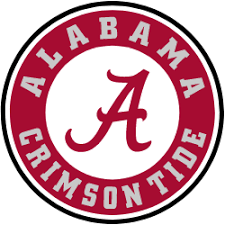By: Anthony Studnicka
The University of Alabama Crimson Tide have been a dominant force in college football for quite a while, and it doesn’t appear that their dominance seems to be ending anytime soon. In many of Alabama’s home games by the time the second half begins the games are not very contentious, as the Crimson Tide often win by a wide margin. Despite their continued success on the football field, their program still endures hardships. The Crimson Tide have recently experienced a 22-year low in attendance at home football games.[1] In response, Alabama has decided to take action to elicit students to attend and stay at the football games for all four quarters. Alabama students are now being tracked within the stadium for their attendance during all four quarters through the “Tide Loyalty Points” app, which they voluntarily consent to when they download their ticket.[2] How the app works is rather simple. Students who attend the game are tracked through a Bluetooth technology while in the stadium to ensure they remain there all four quarters.[3] Some exceptions apply where students can leave early for safety precautions, such as exceedingly warm weather.[4] The incentive is that students who earn their Tide Loyalty Points will have an increased opportunity to be eligible for potential college football playoff tickets.[5] However, with this new innovation privacy and other concerns have loomed with the implementation.[6] The Alabama Athletic director, Greg Byrne has drawn a comparison to the technology as similar to taking attendance in a classroom.[7]
An interesting aspect arises from the fact that Alabama is a public state university. From this, a question emerges if Alabama has the legal authority to implement this. Adam Schwartz, a lawyer for The Privacy Frontier Foundation, has said this advancement is “very alarming” and “why should packing the stadium in the fourth quarter be the last time the government wants to know where students are?”[8]
To begin the program, Alabama students consent to this tracking by the University by downloading the tickets and the app on their phones.[9] Starting here, the University seems to be covered. Students are not tracked if they do not want to attend the football game, and only tracked within the stadium.[10] With regard to amateur sports, courts have stated in the past that participation in sports is a privilege, not a right, except in extremely limited circumstances.[11] It would be logical to extend this line-of-thinking to the conclusion that spectating and attending a sporting event is also not a right, but a privilege, therefore giving Alabama the ability to do this.
In addition, the University of Alabama provides an alternative option where students who want to receive reward points have the ability to opt out of the tracking services completely and scan their identification cards as they exit the game.[12] Students who elect this method still are eligible to receive the same rewards points.[13]
It appears that the alternative method of scanning may be the most effective avenue for ensuring attendance for all four quarters, and the University should explore this method further if they continue to receive push back. However, one could speculate that the reason the University of Alabama elected not to go with the scanning of identification cards for their rewards system entirely was due to lack of efficiency. To scan tens of thousands of cards would take a significant amount of time and tracking through a Bluetooth technology is much quicker. On the contrary, an additional benefit the scanning method would provide is that the system would become very hard-to-cheat. With the current method of Bluetooth tracking, one student can hold onto the phones of multiple other students and take turns staying at the game late, and the results may be skewed and inaccurate.
The University of Alabama seems to be legally protected within this new initiative targeted to ramp up attendance at their football games. It makes sense why they’ve elected to utilize this method as opposed to primarily utilizing the scanning alternative. One, the student will consent to the tracking and downloading the device.[14] Two, Alabama uses a Bluetooth tracking system as compared to a GPS locator, which reduces the risk that the information is being collected from students outside of the stadium. This illustrates the limited intent to merely utilize it for in-stadium purposes.[15] And third, Alabama provides a realistic alternative for students who want to opt out, yet still attend the game and receive reward points.[16] It appears that this is a smart, legal, and innovative plan by the University of Alabama to achieve their goal of ramping up fourth quarter attendance at their home games.
[1] Thomas Baker, Upon Further Review, Privacy Concerns Over Alabama’s Football Fan Tracking App Seem Overblown, Forbes (Sept. 20, 2019), https://www.forbes.com/sites/thomasbaker/2019/09/20/upon-further-review-bamas-app-for-tracking–football-attendance-is-probably-not-an-unreasonable-invasion-of-student-privacy/#3f002c2c1542
[2] Billy Witz, Orwellabama? Crimson Tide Track Locations to Keep Students at Games, The New York Times (Sept. 12, 2019), https://www.nytimes.com/2019/09/12/sports/alabama-tracking-app.html
[3] Thomas Baker, Upon Further Review, Privacy Concerns Over Alabama’s Football Fan Tracking App Seem Overblown, Forbes (Sept. 20, 2019), https://www.forbes.com/sites/thomasbaker/2019/09/20/upon-further-review-bamas-app-for-tracking–football-attendance-is-probably-not-an-unreasonable-invasion-of-student-privacy/#3f002c2c1542
[4] Id.
[5] Id.
[6] Id.
[7] Id.
[8] Billy Witz, Orwellabama? Crimson Tide Track Locations to Keep Students at Games, The New York Times (Sept. 12, 2019), https://www.nytimes.com/2019/09/12/sports/alabama-tracking-app.html
[9] Id.
[10] Id.
[11] M.H. v. Montana High Sch. Ass’n, 929 P.2d, 239, 247 (Mont. 1996).
[12] Thomas Baker, Upon Further Review, Privacy Concerns Over Alabama’s Football Fan Tracking App Seem Overblown, Forbes (Sept. 20, 2019), https://www.forbes.com/sites/thomasbaker/2019/09/20/upon-further-review-bamas-app-for-tracking–football-attendance-is-probably-not-an-unreasonable-invasion-of-student-privacy/#3f002c2c1542
[13] Id.
[14] Billy Witz, Orwellabama? Crimson Tide Track Locations to Keep Students at Games, The New York Times (Sept. 12, 2019), https://www.nytimes.com/2019/09/12/sports/alabama-tracking-app.html
[15] Thomas Baker, Upon Further Review, Privacy Concerns Over Alabama’s Football Fan Tracking App Seem Overblown, Forbes (Sept. 20, 2019), https://www.forbes.com/sites/thomasbaker/2019/09/20/upon-further-review-bamas-app-for-tracking–football-attendance-is-probably-not-an-unreasonable-invasion-of-student-privacy/#3f002c2c1542
[16] Id.




